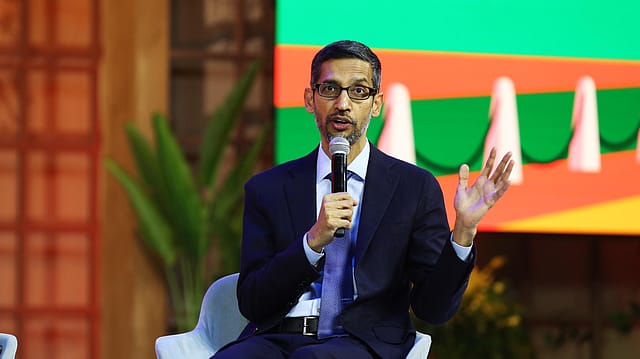CCI order to make smartphones expensive, prone to data theft: Google
ADVERTISEMENT

Tech giant Google on Friday said the directions issued by India's antitrust watchdog strike a blow at the ecosystem-wide efforts to accelerate digital adoption in the country.
"Foundational disruptions at this stage could set us back years and undo the deep investments and effort made by OEMs, developers and the industry overall," the Alphabet-owned company says in a blog post.
This comes over two months after the Competition Commission of India (CCI) imposed a ₹1,337.76 crore penalty on the tech behemoth for abusing its dominant position in multiple markets in the Android mobile device ecosystem. "The mandatory pre-installation of the entire Google Mobile Suite under Mobile Application Distribution Agreement with no option to uninstall the same and their prominent placement amounts to imposition of an unfair condition on the device manufacturers," the antitrust watchdog said in October last year. Days later, the CCI imposed another penalty worth ₹936.44 crore on Google for anti-competitive practices in relation to its Play Store policies.
Google, in its first public statement on the matter, says the CCI order harms the consistent and predictable digital ecosystem that has "benefitted users and developers for over 15 years".
Devices built on incompatible versions of Android or 'forks' would prevent Google from securing those devices, as these versions will not support the security and user safety features that Google provides, it says in the blog post.
January 2026
Netflix, which has been in India for a decade, has successfully struck a balance between high-class premium content and pricing that attracts a range of customers. Find out how the U.S. streaming giant evolved in India, plus an exclusive interview with CEO Ted Sarandos. Also read about the Best Investments for 2026, and how rising growth and easing inflation will come in handy for finance minister Nirmala Sitharaman as she prepares Budget 2026.
"Lack of robust and consistent security upgrades will leave the users of those devices exposed to cybercrime, bugs, and malware - which is most troubling for the millions of new internet users who are especially vulnerable," it adds.
"Predatory apps that expose users to financial fraud, data theft and a number of other dangers abound on the internet, both from India and other countries. While Google holds itself accountable for the apps on Play Store and scans for malware as well compliance with local laws, the same checks may not be in place for apps sideloaded from other sources," the search giant says.
Unchecked proliferation of such apps on less secure devices can expose vast swathes of Indian users to risk of their data being exposed and pose threats for individual and national security, it claims.
The order will result in more expensive smartphones, according to Google. "Since incompatible Android forks will not support the security and user safety features that Google provides, security responsibilities for these devices will instead fall to the OEMs, who will need to invest extensively in creating consistent, all-year-round security upgrades themselves. This will result in higher costs for the OEMs, and consequently, more expensive devices for Indian consumers," it says.
"When developers write apps for Android, the apps can immediately access Android's vast base of users. This allows even small developers to compete with large developers across the whole Android ecosystem, based on the merit and superiority of the product. In a forked Android environment, small developers will be forced to prioritize which of the various incompatible Android 'forks' they write and maintain apps for, as their costs will increase with each additional version they support," it says in the blog post.
"For a country like India, where the cost of adoption is the biggest barrier to digitisation, this has had profound implications. More users have incentivised more developers, and each of those developers achieve immediate scale by writing a single app for Android," Google says.
The number of annual app downloads in India reached a new high of 29 billion in 2022, making it the second biggest app market after China.
